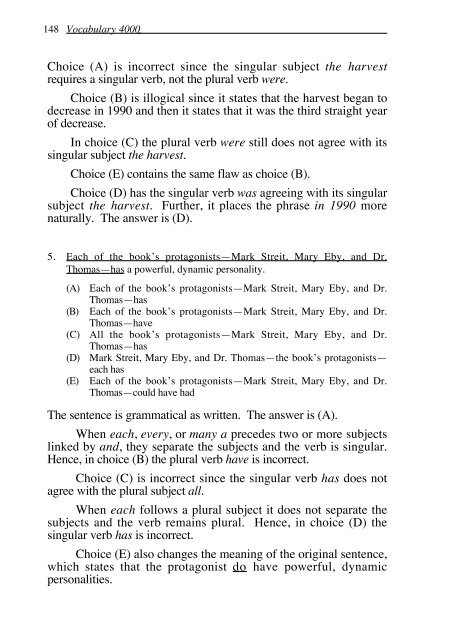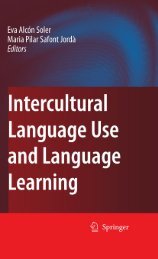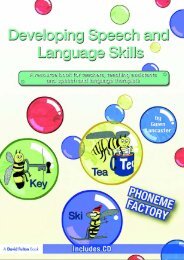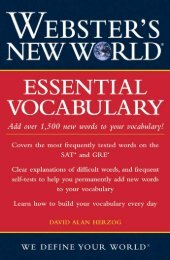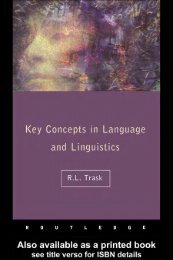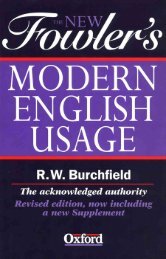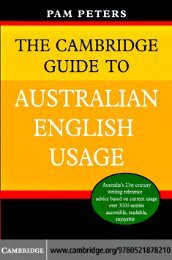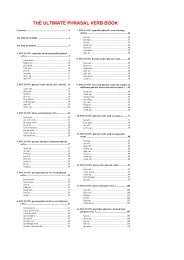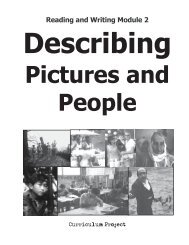Vocabulary 4000 - Noel's ESL eBook Library
Vocabulary 4000 - Noel's ESL eBook Library
Vocabulary 4000 - Noel's ESL eBook Library
You also want an ePaper? Increase the reach of your titles
YUMPU automatically turns print PDFs into web optimized ePapers that Google loves.
148 <strong>Vocabulary</strong> <strong>4000</strong><br />
Choice (A) is incorrect since the singular subject the harvest<br />
requires a singular verb, not the plural verb were.<br />
Choice (B) is illogical since it states that the harvest began to<br />
decrease in 1990 and then it states that it was the third straight year<br />
of decrease.<br />
In choice (C) the plural verb were still does not agree with its<br />
singular subject the harvest.<br />
Choice (E) contains the same flaw as choice (B).<br />
Choice (D) has the singular verb was agreeing with its singular<br />
subject the harvest. Further, it places the phrase in 1990 more<br />
naturally. The answer is (D).<br />
5. Each of the book’s protagonists—Mark Streit, Mary Eby, and Dr.<br />
Thomas—has a powerful, dynamic personality.<br />
(A) Each of the book’s protagonists—Mark Streit, Mary Eby, and Dr.<br />
Thomas—has<br />
(B) Each of the book’s protagonists—Mark Streit, Mary Eby, and Dr.<br />
Thomas—have<br />
(C) All the book’s protagonists—Mark Streit, Mary Eby, and Dr.<br />
Thomas—has<br />
(D) Mark Streit, Mary Eby, and Dr. Thomas—the book’s protagonists—<br />
each has<br />
(E) Each of the book’s protagonists—Mark Streit, Mary Eby, and Dr.<br />
Thomas—could have had<br />
The sentence is grammatical as written. The answer is (A).<br />
When each, every, or many a precedes two or more subjects<br />
linked by and, they separate the subjects and the verb is singular.<br />
Hence, in choice (B) the plural verb have is incorrect.<br />
Choice (C) is incorrect since the singular verb has does not<br />
agree with the plural subject all.<br />
When each follows a plural subject it does not separate the<br />
subjects and the verb remains plural. Hence, in choice (D) the<br />
singular verb has is incorrect.<br />
Choice (E) also changes the meaning of the original sentence,<br />
which states that the protagonist do have powerful, dynamic<br />
personalities.


